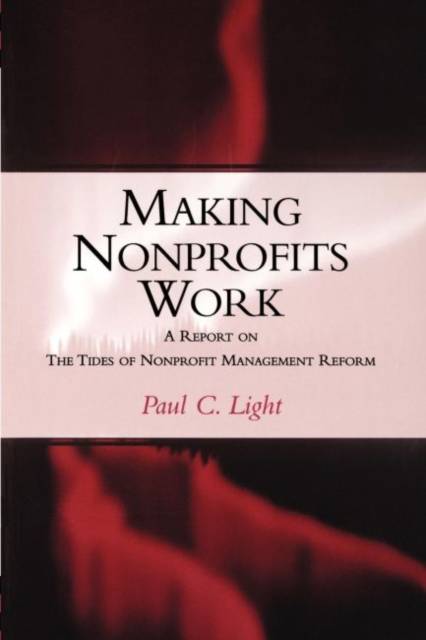
- Retrait gratuit dans votre magasin Club
- 7.000.000 titres dans notre catalogue
- Payer en toute sécurité
- Toujours un magasin près de chez vous
- Retrait gratuit dans votre magasin Club
- 7.000.0000 titres dans notre catalogue
- Payer en toute sécurité
- Toujours un magasin près de chez vous
Making Nonprofits Work
A Report on the Tides of Nonprofit Management Reform
Paul C LightDescription
The nonprofit sector has never been under greater pressure to prove itself. With missions expanding and funding never more competitive, the sector suffers from a general impression that it is less efficient and more wasteful than its government and private competitors. Its funders, be they governments, charitable foundations, or individual givers, have never seemed so insistent about economy and results, while its clients, be they communities or individuals, have never been more demanding about efficiency and responsiveness. How the nonprofit sector does its work is becoming almost as important to funders and clients as what the sector actually delivers by way of goods and services.The problem is that there is virtually no agreement on just how nonprofits can improve. Unlike the federal government, the nonprofit sector is still at the beginning of its reform journey and its networks of consultants, management associations, and scholars are only beginning to develop the research base to know what reforms might work under what conditions. In Making Nonprofits Work, Paul C. Light charts the current trends of management reform in the nonprofit sector and assesses the climate for reform at the local and national levels. Light examines the four popular philosophies, or ""tides,"" being advocated-- scientific management, liberation management, war on waste, and watchful eye--offering examples and caveats from a portfolio of recent experience. Drawing on confidential interviews with leaders in nonprofit management reform, a detailed search of Internet sources, and a survey of state associations of nonprofit organizations, Light's findings suggest that the nonprofit sector has a remarkable opportunity to prevent the excesses and fadism that have dominated reform efforts in government and the private sector. He cautions leaders in the nonprofit sector to recognize the limits of various reform models, to set priorities carefully, and to limit investments of reform energ"
Spécifications
Parties prenantes
- Auteur(s) :
- Editeur:
Contenu
- Nombre de pages :
- 128
- Langue:
- Anglais
Caractéristiques
- EAN:
- 9780815752455
- Date de parution :
- 01-03-00
- Format:
- Livre broché
- Format numérique:
- Trade paperback (VS)
- Dimensions :
- 152 mm x 230 mm
- Poids :
- 190 g

Les avis
Nous publions uniquement les avis qui respectent les conditions requises. Consultez nos conditions pour les avis.






